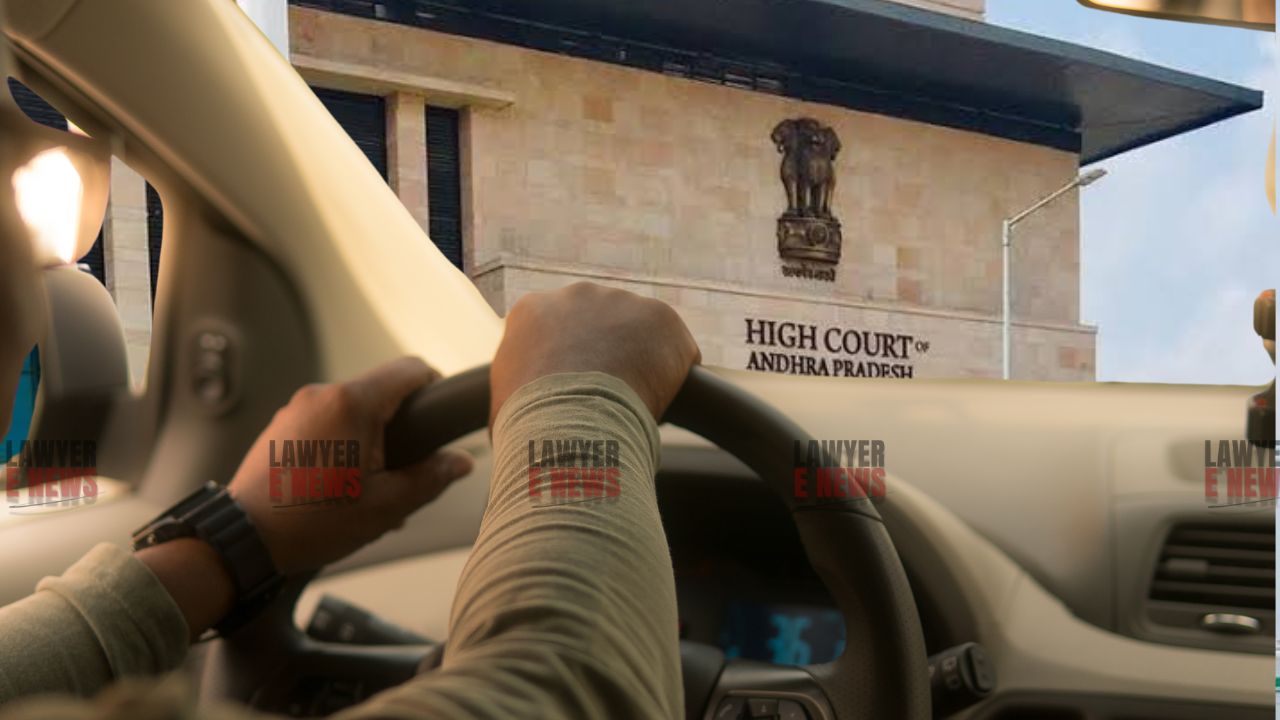-
by Admin
15 February 2026 5:01 PM



Charges against Jangam Anand Raju revised to Sections 304-A, 337, and 338 IPC by Andhra Pradesh High Court, citing insufficient evidence for Section 304(ii) IPC. The Andhra Pradesh High Court, presided by Justice Dr. V.R.K. Krupa Sagar, has revised the charges in a high-profile road accident case, emphasizing the distinction between negligence and culpable homicide. The court found that the material on record did not support a charge under Section 304(ii) IPC (culpable homicide not amounting to murder) but warranted charges under Sections 304-A (causing death by negligence), 337, and 338 IPC (causing hurt and grievous hurt by act endangering life or personal safety of others).
On December 24, 2017, Sri Jangam Anand Raju, the petitioner and owner-cum-driver of a Scorpio car, allegedly drove his vehicle at high speed and in a negligent manner on NH16 near Kurellagudem Village, West Godavari District. His erratic driving resulted in a series of collisions: first with a truck auto, then two motorcycles, and finally a road divider. The incident led to the death of three individuals and caused injuries to several others.
An investigation ensued, and the Inspector of Police, Bhimadole circle, filed a charge sheet against Raju for offences under Sections 304(ii), 338, and 337 IPC. The petitioner sought discharge from these charges, but the VII Additional Sessions Judge, West Godavari, Eluru dismissed his plea, leading to the current revision petition.
The petitioner's counsel argued that the blame lay with the auto truck, which was overloaded, driven without a license, and lacked insurance. They claimed the truck was the actual culprit, causing the petitioner to swerve his vehicle to avoid a collision. However, the court noted that these arguments pertain to defense matters appropriate for trial rather than pre-trial discharge.
Justice Krupa Sagar cited the Supreme Court’s precedent in State of Bihar v. Ramesh Singh, stating that the trial court must only assess whether the prosecution’s evidence, if unchallenged, could not support a conviction. The court found no procedural or substantive errors in the trial court's assessment that warranted the petitioner's discharge at this stage.
The crux of the revision petition revolved around whether the petitioner’s actions constituted culpable homicide under Section 304(ii) IPC or merely negligence under Section 304-A IPC. The High Court referred to the Supreme Court’s decision in Alister Anthony Pereira v. State of Maharashtra, which delineates the conditions under which reckless or negligent driving may escalate to culpable homicide.
Justice Krupa Sagar observed, “Driving a vehicle at a high speed in a zig-zag manner leading to an incident resulting in deaths and injuries can be seen as an act of negligence or rashness covered by Sections 304-A, 337, and 338 IPC rather than culpable homicide under Section 304(ii) IPC.”
The court emphasized that the petitioner’s actions, while negligent, did not demonstrate the level of knowledge or intent necessary to sustain a charge of culpable homicide not amounting to murder. The investigation did not reveal evidence of the petitioner driving under circumstances that would justify a charge under Section 304(ii) IPC.
The Andhra Pradesh High Court’s decision to amend the charges against Jangam Anand Raju underscores the judiciary's careful consideration of the nuances between different levels of criminal negligence. By adjusting the charges to Sections 304-A, 337, and 338 IPC, the court aligns the legal response more accurately with the petitioner’s alleged conduct.
This judgment reaffirms the principle that while severe negligence resulting in fatalities is punishable, it does not necessarily equate to culpable homicide unless specific conditions are met. The case will proceed under the revised charges, with the trial to be conducted by the Judicial Magistrate of the First Class.
Date of Decision: July 31, 2024
Sri Jangam Anand Raju v. The State of Andhra Pradesh
